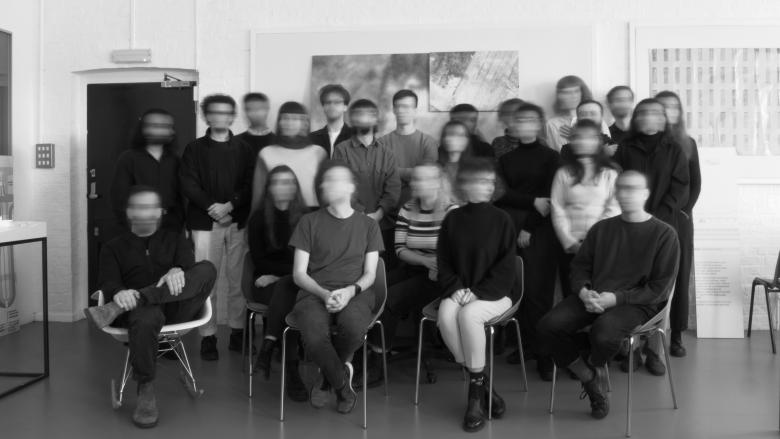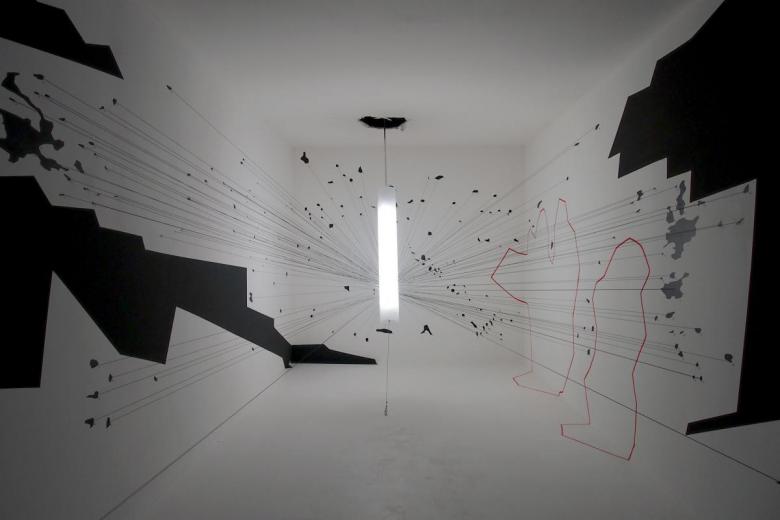Forensic Architecture Wins 2022 Jencks Award
John Hill
9. de desembre 2022
The Forensic Architecture team (Photo: Forensic Architecture)
The Jencks Foundation and the Royal Institute of British Architects (RIBA) have announced that Forensic Architecture is the 2022 recipient of the RIBA Charles Jencks Award, named for the influential architecture critic and landscape designer.
Established by the late critic Charles Jencks in 1992 as an exchange program between British and Japanese architects, since 2003 the namesake award has been given annually to "an individual (or practice) that has recently made a major contribution simultaneously to the theory and practice of architecture," per RIBA. Last year, following a one-year cancelation due to the pandemic, the Jencks Award was given to Indian architect Anupama Kundoo.
Forensic Architecture is a research agency based at Goldsmiths, University of London, founded by Eyal Weizman in 2010. As the name of the agency implies, Forensic Architecture uses architecture as a tool of forensics, including, in their words, "cutting-edge techniques in spatial and architectural analysis, open source investigation, digital modeling, and immersive technologies." They work with NGOs, activists, and legal teams in "investigating human rights violations including violence committed by states, police forces, militaries, and corporations."
Investigations have focused on drone strikes in Pakistan, Israeli strikes in Gaza, air strikes in Syria, the murder of Halit Yozgat in Kassel, Germany, the Grenfell Tower fire in London, and the Beirut port explosion, among dozens others documented on their website.
"We are particularly honored to be this year’s recipients of the RIBA Charles Jencks Award for two reasons. Firstly, it’s the first honor we received from the architectural establishment, and we are delighted the discipline demonstrates its commitment to grow and accommodate practices such as ours, which have been launched from architecture in different destinations. We hope that the award helps inspire architects to use their disciplinary tools to fight for justice publicly and politically. It is also an honor because of my friendship with and longstanding admiration of Charles, who supported the work of FA over the years. To be awarded this prize now is thus bittersweet, as we would have loved to celebrate it with him."
Though not alone in using architectural tools toward social justice, the niche that Forensic Architecture has staked for itself has brought them attention and accolades from the worlds of art — they were shortlisted for the Turner Prize in 2018 and were the subject of a monographic exhibition at the Louisiana Museum of Modern Art earlier this year — and now architecture.
"Forensic Architecture have created and defined a new field in which the skills, spatial awareness and knowledge associated with the profession have been turned towards social justice and focused on investigating violence perpetrated by states against their citizens. Their work has radically redefined architecture as an engagement with human rights, merging new developments in technology, media and investigative techniques which use an architectural intelligence to demand justice for the powerless, the oppressed and at the crises points of the borders. Their work, which has been used in international courts, tribunals and parliamentary inquiries as well as being propagated through the cultural sphere in exhibitions and publishing, has marked a huge shift in understanding what architecture can do to redress injustice."
In addition to a £3,000 prize, the winner of the Jencks Award delivers a lecture at the RIBA. Forensic Architecture will speak at RIBA on February 22, 2023, when it will formally be given the award.
Forensic Architecture's participation in "Reporting from the Front," the 2016 Venice Architecture Biennale (Photo: John Hill/World-Architects)
Previous winners of the RIBA Charles Jencks Award:- 2021: Anupama Kundoo
- 2020: [No award]
- 2019: Débora Mesa and Antón García-Abril, Ensamble Studio
- 2018: Alejandro Aravena
- 2016: Níall McLaughlin
- 2015: Herzog & de Meuron
- 2013: Benedetta Tagliabue
- 2012: Rem Koolhaas
- 2011: Eric Owen Moss
- 2010: Stephen Holl
- 2009: Charles Correa
- 2008: Wolf Prix
- 2007: Ben van Berkel and Caroline Bos, UN Studio
- 2006: Zaha Hadid
- 2005: Alejandro Zaera-Polo and Farshid Moussavi, Foreign Office Architects
- 2004: Peter Eisenman
- 2003: Cecil Balmond
Articles relacionats
-
The 10 Best Architecture Books of 2024
hace 2 mesos
-
The Best Architecture Books of 2023
19/10/23
-
Talking Elbphilharmonie
17/11/17

